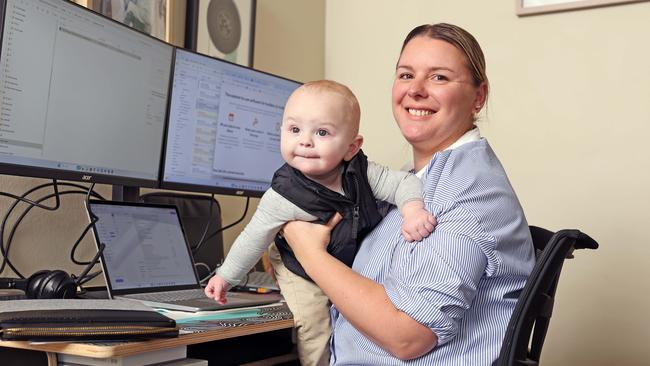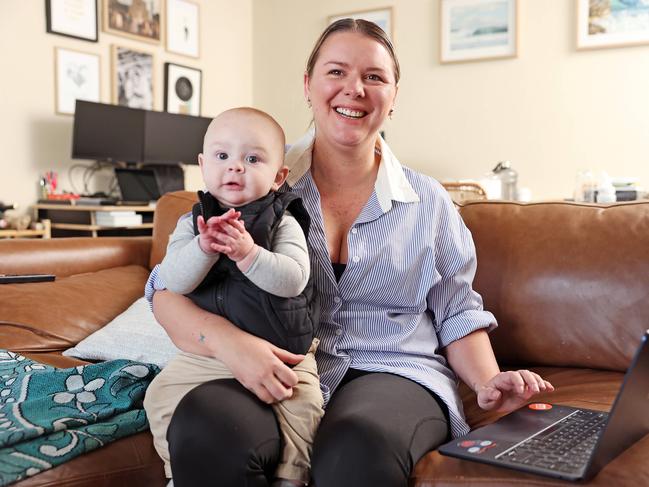Why workers would rather earn less and work from home than go into the office
A growing number of workers are choosing to take pay cuts so they can continue to work at home post pandemic.

NSW
Don't miss out on the headlines from NSW. Followed categories will be added to My News.
Sydney IT worker Emily Ossington’s pay has been slashed by 20 per cent, and she couldn’t be happier.
Ms Ossington, who works in customer service and software, is one of a growing number of workers choosing to take pay cuts so they can continue to work at home post pandemic.
A recent survey by software research site Capterra revealed that 35 per cent of Australian workers would prefer to work entirely remotely if given the choice; and 34 per cent said they would take a pay cut to do so.
Improving work-life balance was the number one priority for people choosing to work from home, at 49 per cent of respondents. The second-highest response was to save time, at 16 per cent.
Ms Ossington, 32, made the decision to move jobs, and in doing so take a smaller salary, when her old employer insisted on a full return to the office after the end of Covid-19 pandemic restrictions.
Now a mother to eight-month-old son Elliot, she said she hasn’t looked back.

“I don’t know how we would have done it if we weren’t able to work from home,” she said.
“It’s definitely had a massive impact on my mental health and my physical health.
“I’d lose two and a half to three hours every day, just in transport time.
“It just felt like I was always running late to things, or I was stressed. I never felt like I could get on top of my personal life, because I was always at work.
“It was mostly about getting time back in my life. I chose to make changes in my work life so I could enjoy my life more. Now, being a mum, it’s even more rewarding.”
The Capterra survey – which consulted with almost 3000 workers globally, and 250 in Australia – found more than two thirds of workers wanted remote work in some capacity.
Just over half said their preferred working style was now hybrid work; juggling in-office hours with time spent working from home. Only 14 per cent preferred working fully on-site.
Capterra analyst Laura Burgess said if employers wanted workers back in the office, they may wish to consider incentives to motivate their workers.
“A healthy work-life balance is crucial for employees to stay motivated,” she said.
“With initiatives such as employee feedback and flexible work hours, as well as potentially providing financial subsidies or assistance, employees would be encouraged more to return to the office, at least on a hybrid basis.”
The top three benefits workers said they would most enjoy on-site were free or subsidised food, a flexible work schedule and benefits for those commuting to and from the office.
Ms Ossington said her remote work has been “incredibly helpful” in taking care of her son while still completing her tasks.
“I think if your employees need some headspace, or they want to be able to work from home and they are trusted, then you should be able to do that … some people just prefer that market, and they will be more productive that way,” she said.
Got a news tip? Email weekendtele@news.com.au




